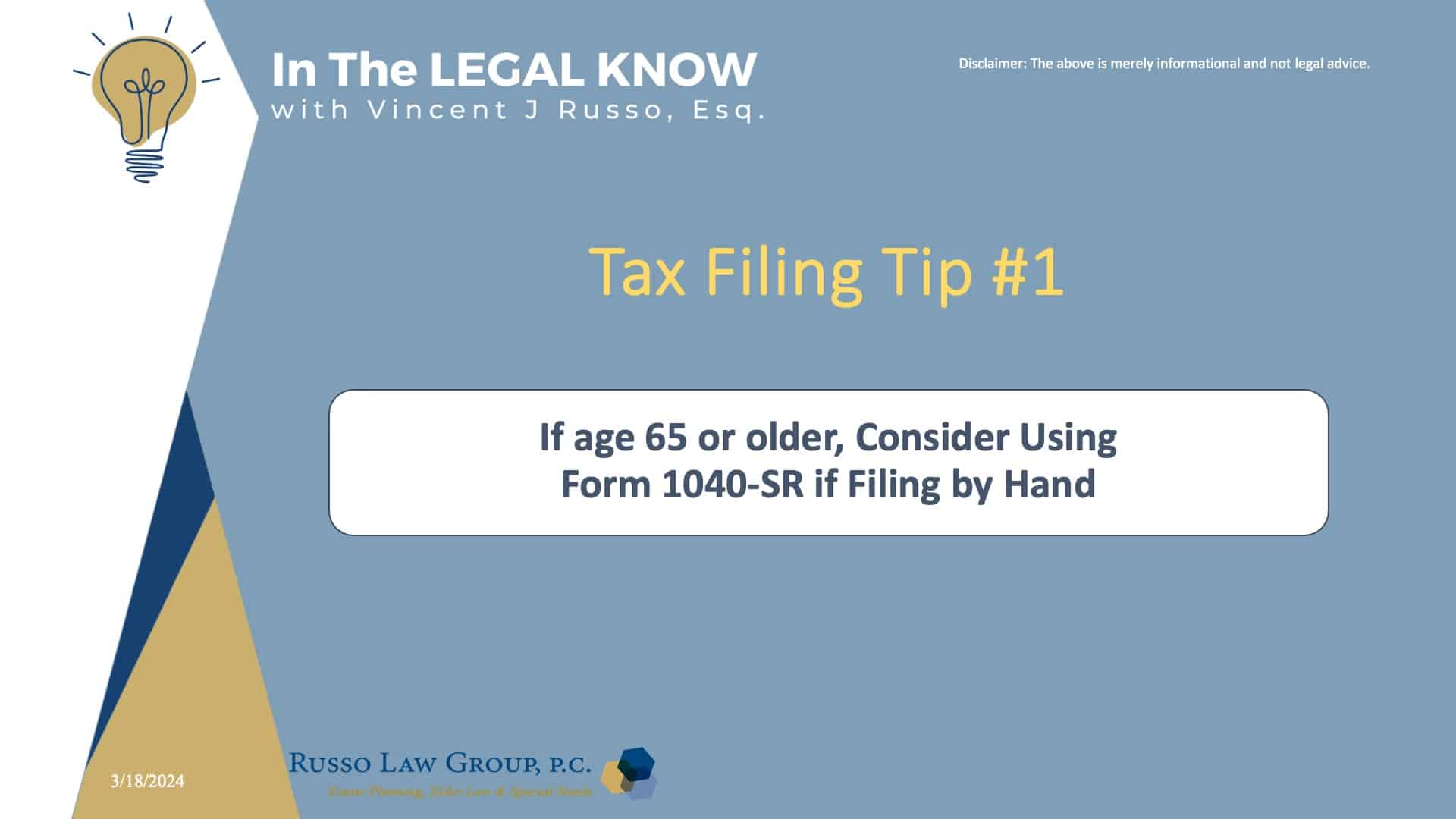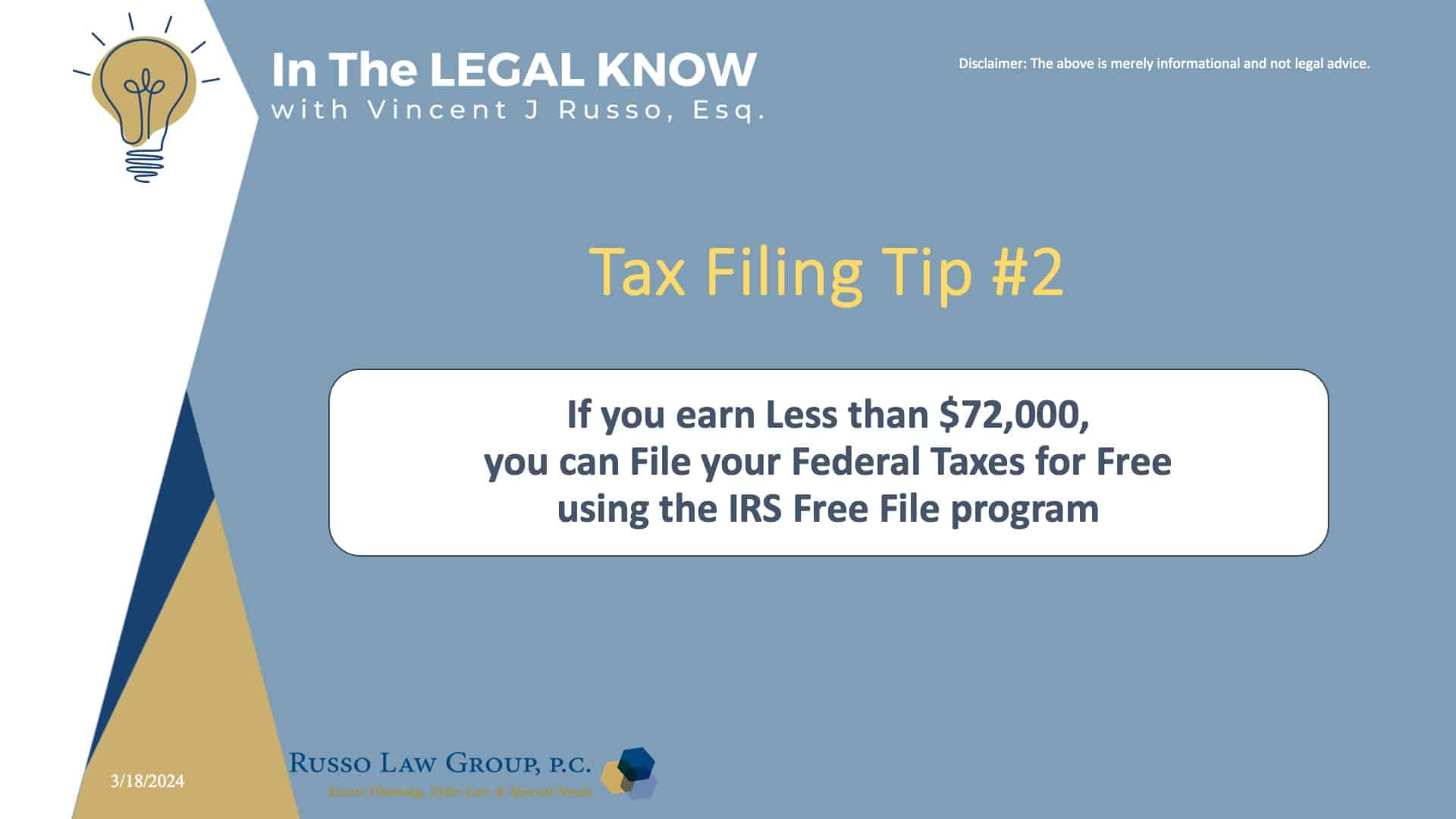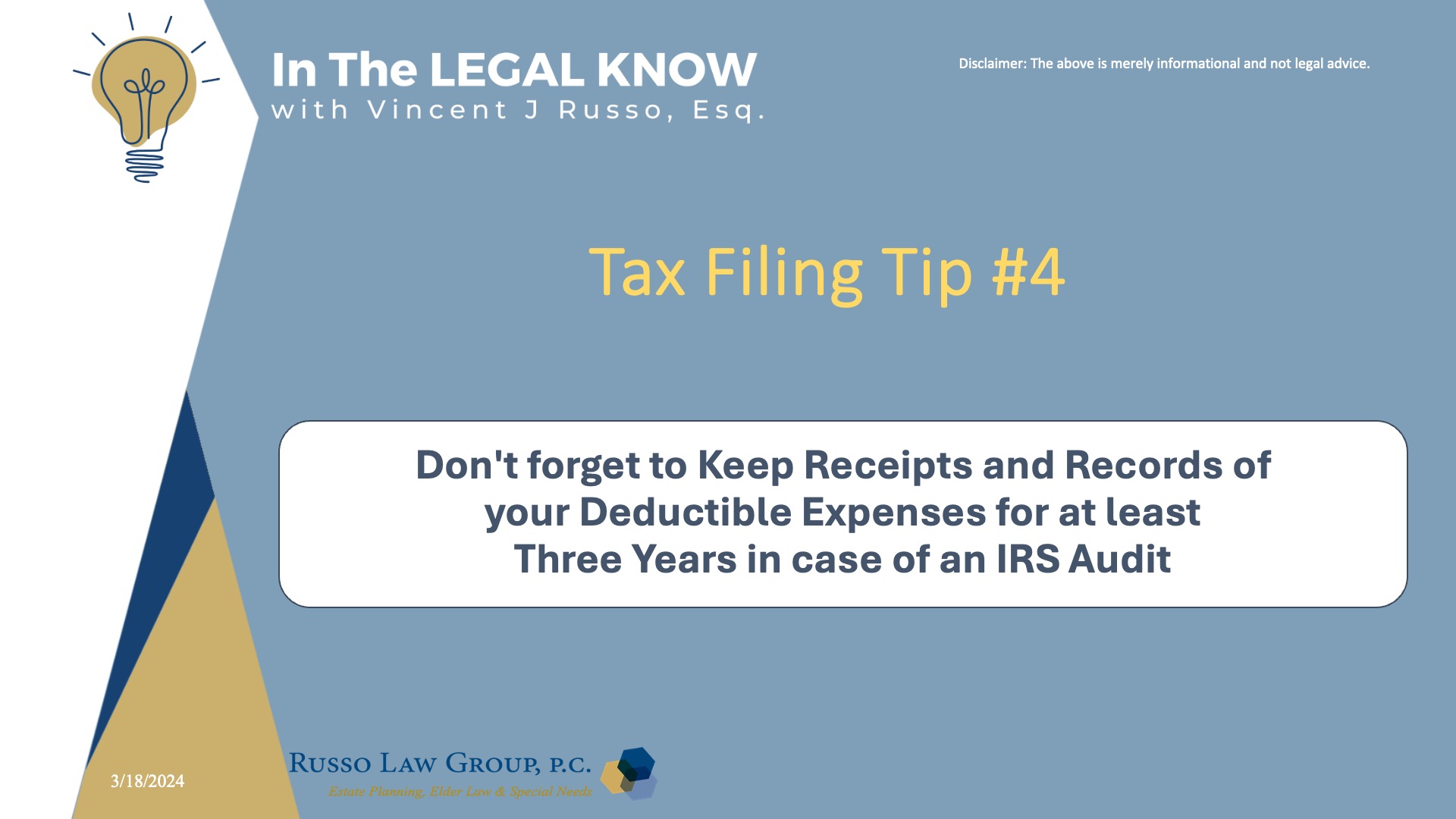This originally aired on the Catholic Faith Network’s show CFN Live: https://youtu.be/HaMEzTyhJd8 What is a…
This originally aired on the Catholic Faith Network’s show CFN Live: https://youtu.be/Jg2qnoMY3qk
 It is that time of year again, where taxpayers must file their personal income tax returns. But, what do you need to know before filing your tax return?
It is that time of year again, where taxpayers must file their personal income tax returns. But, what do you need to know before filing your tax return?
In the big picture, since the tax world is constantly changing, this tax season is no different, with a myriad of rules, deductions, credits, and responsibilities that may seem overwhelming.
Here are some helpful tips on how to navigate the 2024 tax season.
What tax form should I use?
When deciding on which tax return form to use, it’s important to consider your individual financial situation.
The most common form is the 1040 form, which is designed for individuals with more complex finances, including those with earnings above a certain threshold, itemized deductions, or income from self-employment.
For simpler tax situations, there were previously forms such as 1040A and 1040EZ, though recent tax reforms have consolidated many taxpayers onto the Form 1040.
But if you are filing by hand (using a paper form and mailing) and are age 65 or older, you should consider using Form 1040- SR.

Should the taxpayer decide on the method of filing?
The IRS offers several methods for filing your returns, each with its pros and cons. E-filing is the most popular for its speed and accuracy, often delivering refunds in as little as three weeks. If you’re after a more traditional approach, there’s always snail mail, but be aware that processing times can vary.
Electronic filing using tax preparation software is recommended by the IRS for the easiest and most accurate returns and fastest processing time.
If I am entitled to a refund, what is the quickest way to get it?
Who doesn’t love a speedy tax refund? The time it takes to receive a federal income tax refund can vary. If you file electronically and choose direct deposit, the IRS typically issues refunds within 21 days. However, filing by paper or having issues with your tax return can delay the process. It’s important to ensure your return is accurate to avoid any delays in receiving your refund.
If you opt for a direct deposit on your tax return, you can expect your money in about half the time it takes for a paper check. Remember to triple-check your account and routing numbers – you wouldn’t want your money to go to the wrong place!
How do I capitalize on tax deductions?
Tax deductions lower your taxable income, and if you play your cards right, they could significantly reduce your tax bill. Common deductions include charitable donations, mortgage interest, and medical expenses over a certain threshold.
If you have deductions that are greater than the standard deduction, then you can itemize your deductions and save taxes.
The threshold for itemizing tax deductions depends on various factors, including your filing status. The standard deduction amounts are adjusted annually for inflation ($13,850 for single filers, $27,200 for married filing joint for 2023), so it’s important to refer to the current year’s figures when preparing your taxes.
Are social security benefits subject to tax?
Whether or not your Social Security benefits are subject to tax depends on your income level. If the combined total of half your benefits, plus all your other income, exceeds specific limits, a portion of your benefits could be taxable. The base amount varies depending on your filing status.
Does a tax return impact Medicaid eligibility or coverage?
Tax returns can influence your Medicaid eligibility, as there may be income thresholds for eligibility.
Also, income impacts coverage under the Affordable Care Act (ACA) through the premium tax credit, which helps lower the cost of health insurance for individuals and families with incomes between 100% and 400% of the federal poverty level. The amount of the credit depends on your income and the cost of insurance plans in your area. Higher incomes may reduce the amount of the credit, while lower incomes may increase it.
What about tax credits?
Tax credits are the golden eggs of tax season. Unlike deductions that lower your taxable income, credits are a dollar-for-dollar reduction of the tax you owe. Common credits include the Child Tax Credit, the Earned Income Tax Credit (EITC), and the American Opportunity Tax Credit for education expenses.
For a successful and stress-free experience, remember, the tax code is dynamic, so it pays to be informed. Arm yourself with knowledge, explore the numerous resources available, and consider consulting a tax professional if you encounter any complexities.
We hope you found this article helpful. Contact our office today at 1 (800) 680-1717 and schedule an appointment to discuss what makes sense for you and your loved ones.










Comments (0)